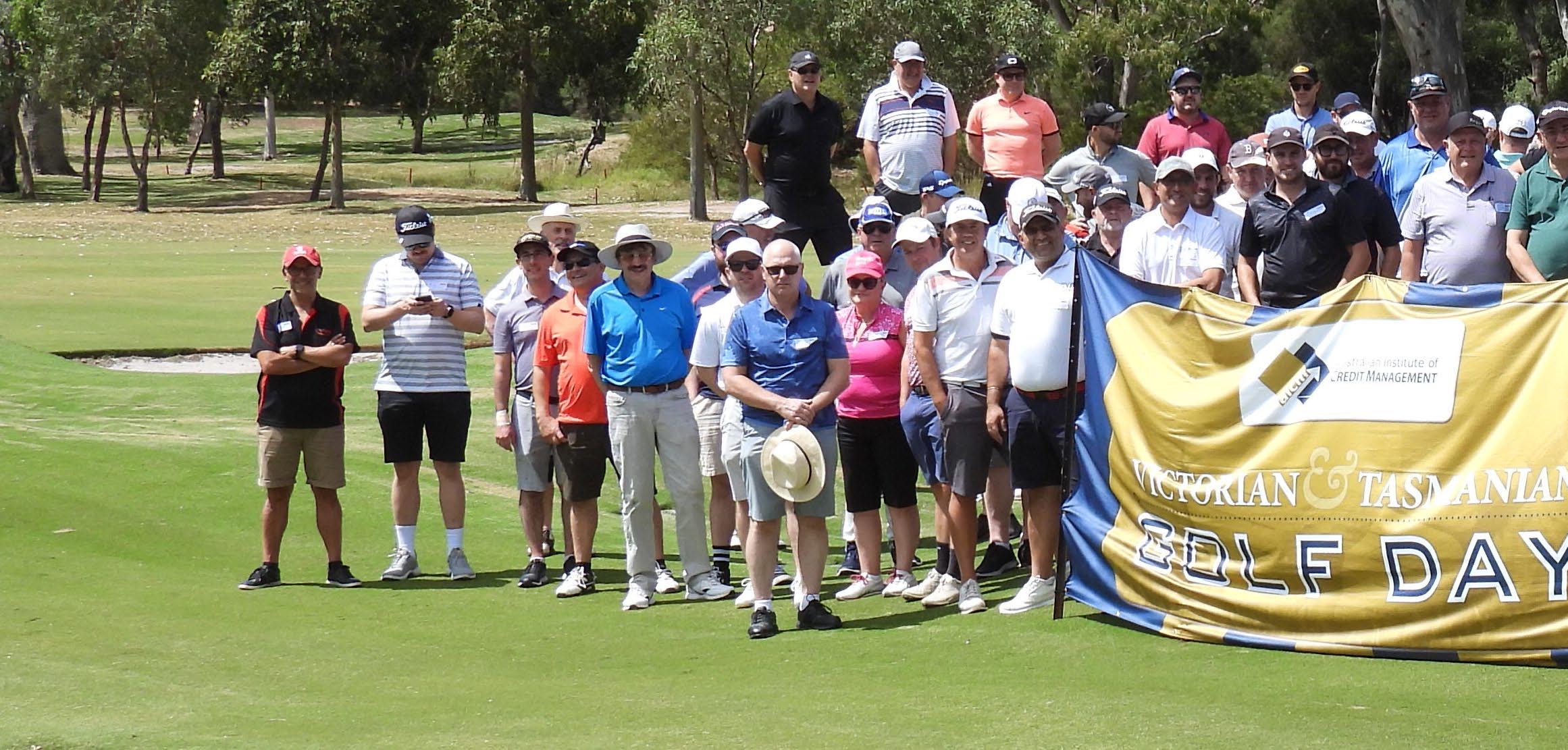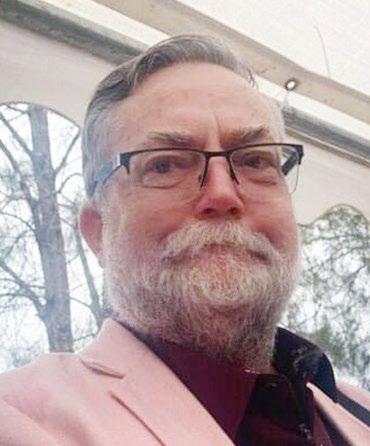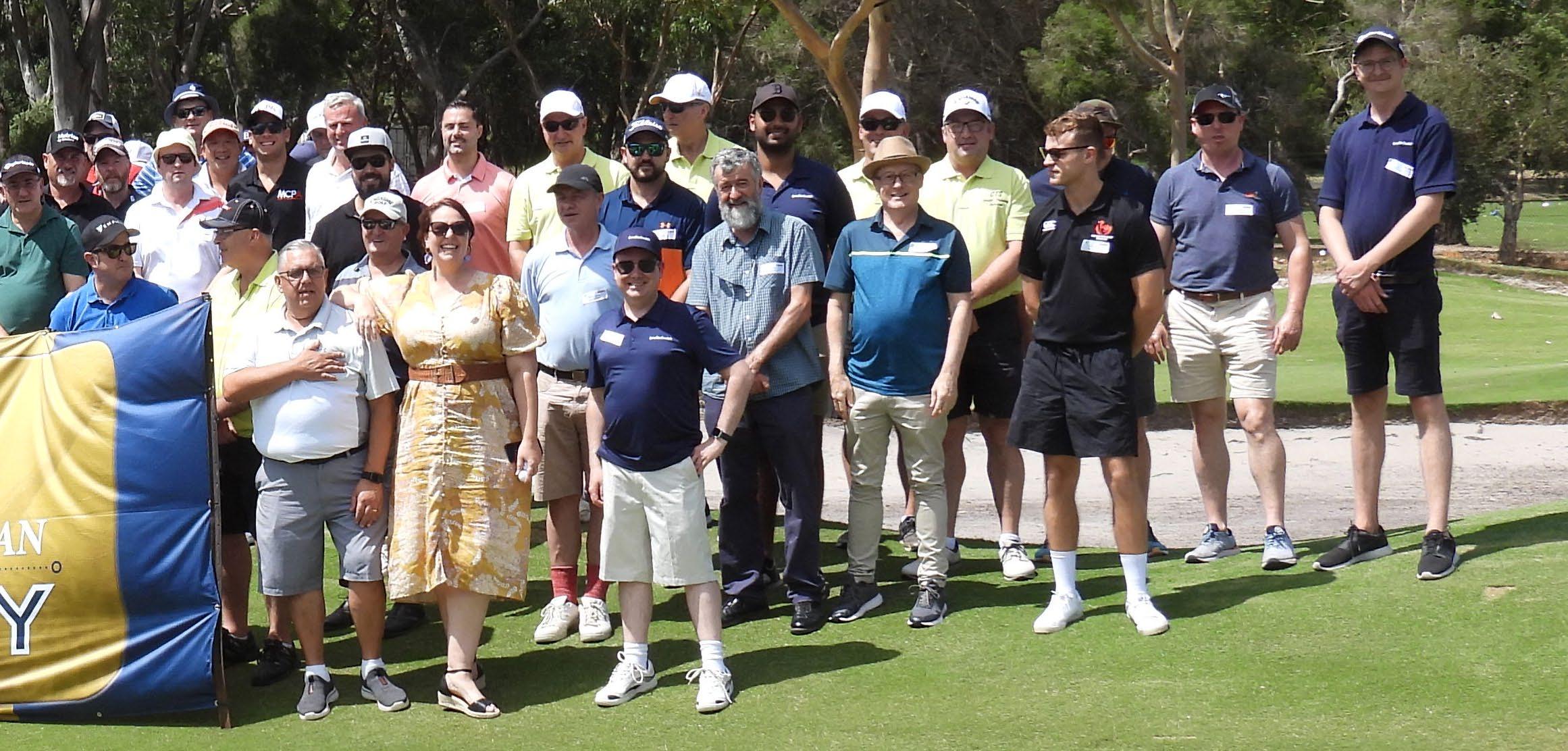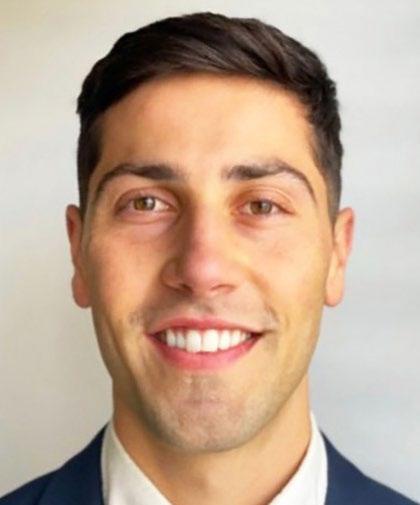
8 minute read
victoria | tasmania
Chown, Aiden Quinn, Jonathan O’Doherty and Michael Baker. Congratulations again!
A huge thanks to our major sponsors for their participation and contribution: NCI, CreditorWatch, Equifax, SV Partners and SPK Glass.
Advertisement
The day wouldn’t have been as big a success without the help of both Vic/Tas President Michelle Carruthers and Vic/Tas Vice President Mary Petreski. Also, a massive thank you as always to Lou Caldararo for his instrumental role in organising the event and thank you to Brian Kay for driving all the way from Ballarat to photographer for the day!
– Alex Hawtin MICM Publications
Milestone Celebrations l 20 years membership – Karen O’Rourke MICM CCE l Life Member – Brian Kay LICM CCE
Members in the spotlight
Brian Kay LICM CCE
Godfrey Hirst
Brian has been in the credit industry for more than 30 years and is currently the Credit Manager at Godfrey Hirst Australia. Having played an instrumental role in helping develop the AICM into what it is today, Brian’s recent elevation to Life Membership award is more than fitting. We sat down with Brian to learn a bit more about him.

How did you get into credit?
Prior to doing credit, I was in the Royal Australian Air Force. I moved to Western Australia, where I worked at a Coles warehouse. They had an opportunity to do some collections work, so I started performing an account’s role within the Coles warehouse. A credit officer role came up for a company called Bell Brothers, which was a family-owned construction supplies business that was eventually bought out by Boral.
It was a very interesting role; people would come in from the bush and pay their accounts with thousands of dollars of cash. I got to meet remarkably interesting characters as a credit officer, and I realised that I quite enjoyed working in credit.
I eventually ended up as the credit manager for Western Australia and Northern Territory, which was a new experience, and had its own challenges. Boral was really my first proper stint in credit, and one of my managers Rona Day involved me in the institute activities on a sub-committee. My next role was with York Australia, an Air Conditioning Company as National Credit Manager, I moved to Sydney. I attended an AICM function and Michael Peet was the NSW AICM President and he inspired me to be involved in the AICM council, more specifically Professional Development and sat in the Chair as New South Wales Council president for a few years. Work then took me to Brisbane and back to Melbourne I became involved in the Queensland AICM Council and then the Victorian Council where I am the current AICM Foundation councillor.
What is the one thing you’re most proud of in your career?
There are two things that I am really proud of. The first thing is that I’ve been able to train people to succeed me. I’ve always been taught that if you want to move on, you should make sure that the person underneath you are trained and able to do your job, and I subscribe quite strongly to that philosophy. I’ve done that about five or six times now, and I’m pretty proud of being able to help develop these individuals into credit managers and credit professionals.
The other thing is from an institute point of view, I have been very heavily involved in the early setup of the registered training organisation and the progression of professional development programs.
There was a team of us, Toni Sawyer, Mike Murphy; Gerry Cavanagh; Neil Ricketts; Brian Fulmer. In NSW Grant Morris, Merv Mahony, Heather Spring; John Field; a whole range of people focussed on Professional Development, we spent two to three years getting it there, and that’s really when the national office became more centralized and professional. The emphasis was on a standard approach to training.

Originally, the institute was like a collective of minds about credit, whereas when we started going down the path of an RTO, there was certainly much more professionalism given to our outlook; rather than being the poor cousins of CPA, the idea was that we would actually stand alone, and I think the institute does that very well now. Rather than just having trade courses that offer guidance on how to deal with different scenarios in credit, we are actually issuing Certificates and Diplomas. I’m proud of the contribution and part I played as a team member.
What do you get out of the AICM?
Well, I think a few things. I think that the networking is still really good. And I’m not talking about going down the pub and having a few beers. I’m talking about something had come up at work, I can jump on the phone and call up, you know, a CCE or call someone else and go, “Hey, look, have you had this experience?” And then they can sort of go “Oh, look, I’ve had this. It’s not quite the same, but you know…” and you can sort of extrapolate from what you know what their experiences are. I think there is a something intrinsic about giving back. I think that really, there’s quite a bit of value in that. And I think that it’s just a camaraderie. Even now on our council, for example, the assistance that I can give to the young minds that are coming up. I think that that’s how we grow the whole institute as well is that people need to come up and have a crack at it and get involved. I’m hoping that that’s going to make a difference to other people, as it certainly has for me.
What changes have you seen in your time in credit?
Technology is obviously a big one. Back in the day we had index cards which were about the size of an iPhone, and we had age trial balances printed on blue and white zip form paper, both of which we hand wrote notes. The facsimile machine was touted as a time saver over “snail mail” A range of electronic messaging and communication were to follow in quick succession. SMS alerts.; texts; emails. Cash, the mainstay of the credit department gave way to EFT’s, Direct deposits, and now real time payments.
I think that the general processes and principles of credit have very much stayed the same. We still do credit checks at customer onboarding, but these days we have the ability to check on google maps to see if there is actually a shopfront, and we have a better ability for customer information validation. I think it is much easier to do now, and the state of reporting has really improved getting better information and to really know who your customer is.
In the credit professional space, the changes have also been noticeable. The introduction of the Young Credit Professional; Pinnacle Awards and Women in Credit have elevated the profession by recognising excellence.
What advice would you give the younger generation coming through the ranks?
Be a lifelong learner. Take every opportunity to gather knowledge from those around you. Would I recommend a career in credit management?
Absolutely! I Do.
Become a member of the AICM and take advantage of free reference material including regular webinars and magazines and if you can enrol in the workshops, toolboxes, or a full qualification. Network with others in the industry. Stick to the basics to start with, there is a lot to learn a lot to explore.
What do you do outside of work?
I take the sidecar out for rides when I can, I love my photography, so I go out to country towns in Victoria for a day trip or even a weekend and explore and discover local produce, wines, and the natural beauty of the Victorian countryside.
Joseph Bonvino MICM CCE Nutrien Ag Solutions

Currently a Credit Manager at Nutrien Ag Solutions, Joseph was the worthy recipient of the 2022 Credit Manager of the year award for Victoria. We sat down with Joseph to learn a little more about him.
How did you get in to credit?
I wasn’t particularly sure what credit really was about before I begun. When I finished school, I wanted to do something potentially in IT and business, but my plans were very broad in that sense. I wasn’t too sure exactly what I wanted to do, so I decided to do a reasonably broad degree of accounting at RMIT.
I then did a bit of traveling; I was in Europe for three months in 2018 and another three months in 2019. When I came back, I began aggressively looking for jobs and found my way to Nutrien. I’ve been with Nutrien about three and a half years now, I started off as credit analyst, and it took me a while to learn the ropes fresh out of uni.
I started off slow, just doing some small deals initially, but as the business grew, more opportunities were arising, and I put myself out there. I find it quite exciting to work on new solutions and to help develop new tools that can benefit the business on a national scale. Initially, I had started working out of the southeast, the position was very region centric. It was a bit difficult to get exposed elsewhere in the business. I ended up running a couple of solutions that were quite successful, which got me promoted to credit manager around four months ago. I’ve now moved on to work for the Northeast region, so Queensland and New South Wales.
Can you tell us about the projects you undertook as a credit analyst?
My role was analysing customers based on different metrics. At Nutrien we do a lot of large-scale reviews of our clients. We support massive livestock and cropping operations in each region, and the core of the job is really to keep that on track and customer on-boarding. We’re consistently chasing up financials and assessing account conduct. I saw the opportunity to create a solution to assess customers by their peak debt levels how well they pay down their debt, what’s their average payment days, and then combined all that to produce a risk grading.
Have you had any Mentors?
I did start off with a mentor, Lou Caldararo. He was originally my manager at Nutrien, and I’ve been keeping in contact with him since he left about a year after I started. He’s always available to recommend guidance as to what I should be trying to achieve and how to achieve those goals. Lou has certainly been a close mentor. My colleague Cherith Dissanayake has really taught me most of what I know. I’ve asked him a lot of dumb questions in my time, I’ve learned from those. My current manager, Scott Williams has also taught me a wealth of knowledge. I feel like without a mentor, specifically for the younger generations, getting a grasp on your role and industry is growing ever difficult.
Coming out of university, you’ve got not much idea what you’re doing. You don’t finish an accounting degree and then do credit in agriculture knowing what you’re in for. Its invaluable when there’s other people out there that will help you, and it makes you want to help others in a similar journey.
What have you got out of the AICM since you became a member?
I enjoy reading the magazine, and I find the social events really valuable. Making connections is important to me, and I think if you’re not involved in an association like the AICM, you’ll be left behind when it comes to building a strong network around yourself. The institute also makes it convenient to learn about what’s going on in the wider credit environment. I’m in a very specific industry, and otherwise don’t have much visibility about what’s happening in other industries and environments.
What advice would you have for a young person coming through Credit?
I would suggest that you must be open and excited about what your future could hold. If you’re worried about stepping into the unknown, you might not get the most out of an opportunity. I really do think you just got to throw yourself in the deep end and is truly the best way to learn important lessons. People will help you along the way, you just have to ask questions and make those connections.
What do you do outside of work?
I play futsal, enjoy camping and travelling. I think money is better spent on experiences than material items. I’m keen to travel to Asia or maybe Europe at some point in the future. Also love watching the football, reading, building websites, and am currently enjoying my new PlayStation 5!










